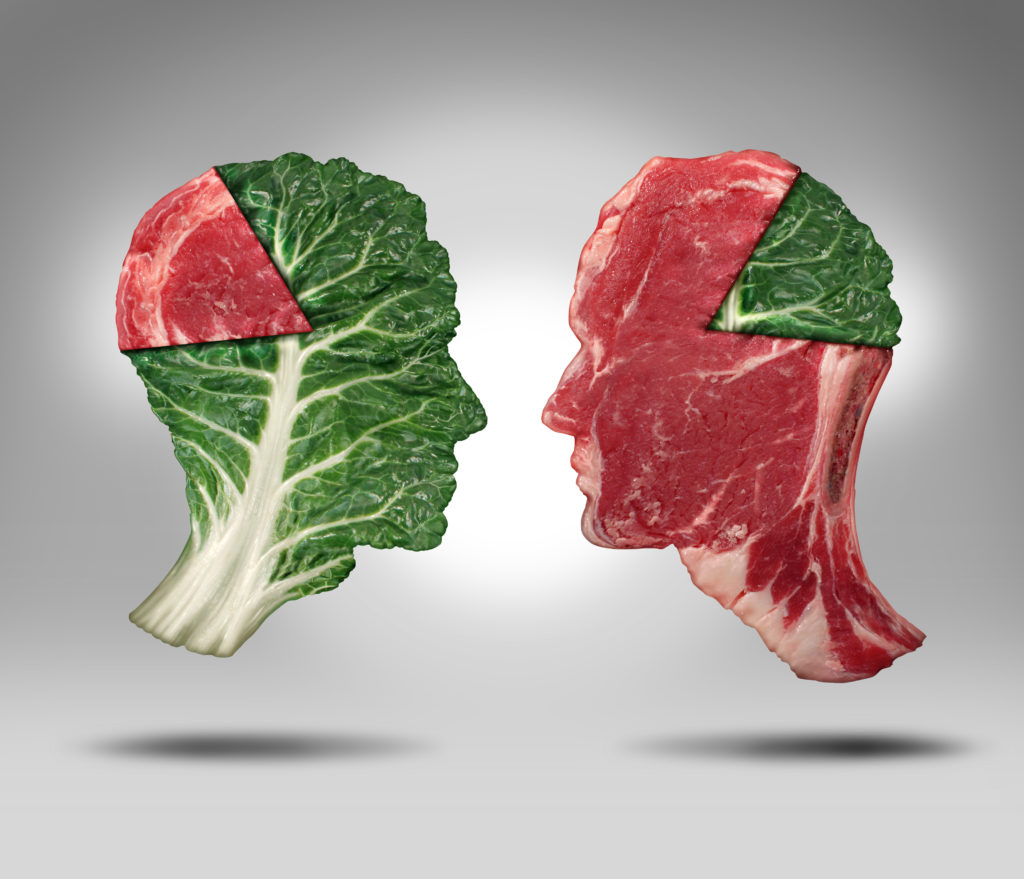
There is a meatless war brewing, and the leading protagonists are slugging it out in a bid to be crowned champion of the alternative meats industry. In one corner is Wall Street darling, Beyond Meat Inc. (BYND), the certified vegan brand that has been serving up meat-like adaptations of burger patties and sausages. In the opposite corner is a formidable competitor, California-basedImpossible Foods, a private player famed for the impossible burger and impossible pork.
But, this playing field is about to become more crowded as plant-based food introduces new players who will have learned from the mistakes of the pioneers.
Still, last year was an epic one for the fake meat industry: In the space of just 12 months, vegan meats went from something very few Americans had even heard of to something that 40% had actually given a try. It all started in the spring of 2019 after Impossible Foods struck strategic partnerships with Qdoba, Burger King and dozens of other restaurants and franchises. Soon thereafter, Beyond Meat started selling its products at several large restaurants including Subway, Dunkin’ Brands Group, Inc. (DNKN) and more recently collaborating with McDonald’s (MCD).
Although, at first, both companies entered the mainstream fast-food market by selling burgers, they have since launched more novel products such as Beyond’s ground beef and KFC chicken to Impossible’s sausages.
The Trends Behind the Trend
Meat is a huge business in the United States! According to the National Chicken Council, in 2018, Americans consumed 110 pounds of beef and pork; 94 pounds of poultry and another 16 pounds of commercial fish and shell-fish per capita for a combined 220 pounds of meat–more than 50 pounds higher than what they consumed in 1960. That’s a colossal amount of meat, placing America second behind only Australia on the list of the world’s biggest per capita meat consumers. This love affair with meat has helped build a $1.4-trillion industry, and meat alternatives are now coming in to stake their claim in this mammoth market.
How big could this budding sector grow?
Currently, the U.S. plant-based food market is valued at $5B with the plant-based meat sector approaching $1B. However, the sector has the potential to grow much bigger, if the growth trajectory of plant-based dairy foods is any indication. Plant-based dairy foods have managed to garner some 14% of the dairy market, with plant-based food retail sales now growing 5x faster than total food sales. If vegan meat is able to replicate this feat, it could balloon to a $200B industry in the near future.
Health-conscious consumers
Over the past decade, global consumers have increasingly been opting for health foods with the global health and wellness food market poised to expand by $236B during over the next four years.
Changing consumer tastes and preferences inevitably elicits the big question: Is plant-based meat a healthier choice than animal meat?
Some vegan meat skeptics have pointed out that many of these meat alternatives are highly processed and do not deserve the “health halo effect” they tend to receive simply on account of being vegan. A few studies have concluded that some vegan meats have calorie, fat and sodium content comparable to or even higher than beef. Still, the health evidence seems to tilt more in favor of vegan meats than animal meat. Harvard researchers have found that plant proteins appear to be most protective from deaths linked to heart disease, especially among people with unhealthy habits including smoking, heavy alcohol intake, overweight/obesity and physical inactivity. A total of 131,000 participants took part in the Harvard study which tracked them over 32 years.
More and more people though are opting for vegan meat due to another big reason: It’s healthier for the environment.
Beyond Meat says it takes about 41 square feet of land and 58 gallons of water to produce one 1/4 pound beef burger, not to mention that our 1.4 billion head of cattle are responsible for 40% of our annual methane budget–a gas that’s 80X more potent than CO2 at trapping the sun’s heat.
A recent Bank of America Merrill Lynch survey revealed that 35% of respondents said they opted for plant-based protein due to health or nutrition reasons while 30% did the same for environmental reasons.
Another reason why more people are choosing plant-based meats is even more appealing: Meat substitutes are getting ever closer to tasting like the real thing! Scientists have made rapid progress making plant-based meats that are virtually indistinguishable from beef for the average consumer. That’s a critical milestone because experts agree that taste will be the big make-or-break factor for the vegan meat industry. The Beyond Burger and Impossible Burger have received positive reviews at Food & Wine while traditional veggie burgers have scored much lower.
The most bullish finding: More than half of respondents, both young and older folks, who have tried plant-based meats say they are likely to come back for more.
Meat-loving China
Although China is home to 18.5% of the world’s population, the country consumes 27% of the world-wide meat production. China’s love-affair with meat has led some analysts to believe that it could become an important market for vegan meat companies once the Chinese become more aware of the health and environmental impact of meat products.
Impossible Foods and Beyond Meat have already shown strong intentions to capitalize on this market with Beyond Meat previously announcing plans to commence vegan meat production in China by 2020-end. Impossible Foods’s sausages could also find a ready market there considering that China currently consumes the largest amount of pork of any country in the world.
So, How Should I Invest?
As we have pointed out above, the alternative meat industry could balloon to a $200B industry if vegan meats are able to grow as fast as their plant-based dairy sector brethren.
To participate in the burgeoning and rapidly evolving Vegan investing space, one should consider a broader and more diversified approach to alleviate some of the potential risk, rather than simply trying to choose an individual stock or two. At Demand Wealth, we have developed the ‘Demand Cruelty Free portfolio for this very purpose. It contains cruelty free screened and globally diversified companies that align with your values, risk profile and financial needs.
If picking vegan stocks seems difficult…IT IS! At Demand Wealth that is what we do. Click here to open an account today or learn more here.
